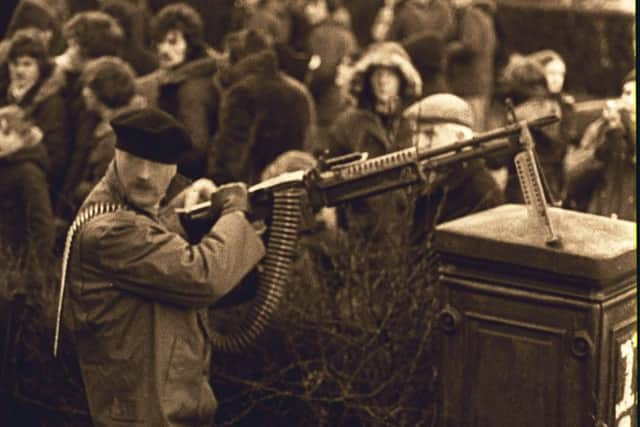Churches must stop patting ex-terrorists on the back
and live on Freeview channel 276
Our core message has remained constant throughout: we have insisted the churches must speak from a Biblical perspective on matters connected with victims and survivors, and that they should not stray into the role of becoming quasi-politicians.
Over the recent NIO legacy consultation period (due to expire on Friday, October 5) we have met with, and/or engaged through written communication, with the denominational leaderships and/or working groups responsible for responding to the proposals, and many individual clergy.
Advertisement
Hide AdAdvertisement
Hide AdNot withstanding the individual proposals and ideas respective denominational churches may put forward, we lay down a challenge to each of them that each of their responses must include the following (which, incidentally, are issues that each have agreed in private discussions with us).


1. The necessity for a change to the current legal definition of victim, and the development of an alternative definition which provides no moral equivalence between perpetrators and the innocents harmed by their actions.
2. The necessity for acknowledgement statements of wrong to be made at the beginning of any new suite of legacy institutions, stating categorically that in the context of Northern Ireland, and notwithstanding grievances experienced or perceived, that there was never justification for the use of criminal violence in the pursuance of or defence of a political objective. This broad acknowledgement statement must be committed to by both the UK and Republic of Ireland and all terrorist organisations and their political annexes.
3. The churches must profess reconciliation can only happen in the context of remorse being expressed, repentance sought, and thereafter a commitment to restitution for what has been stolen away.
Advertisement
Hide AdAdvertisement
Hide AdEach of the denominational churches must state very clearly these three fundamental points within their respective responses. Without this, there is no foundation which can be built on which can be durable and lasting.
IVU appeals to the leaderships of the churches, individual clergy from across the Christian denominations, and other spiritual and religious leaders, to advocate for what is right, to advocate for the innocent, and cease being caught up in the merry-go-round of patting people on the back for stopping what they should never have been involved with in the first instance.
Kenny Donaldson, IVU